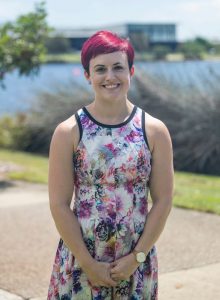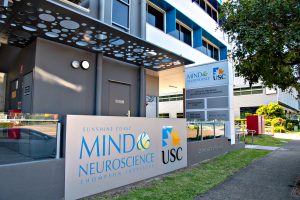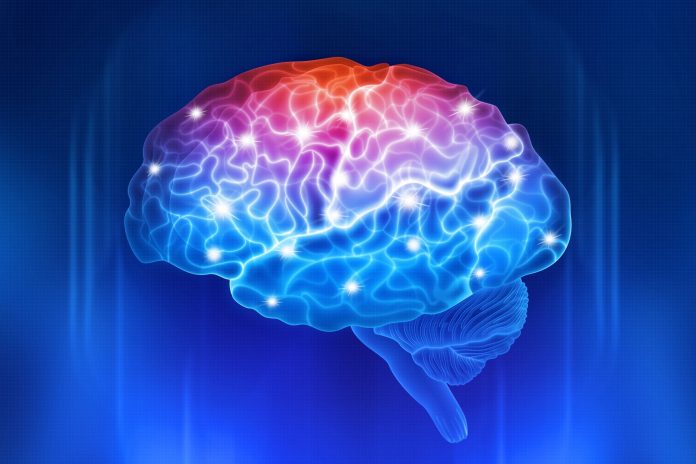World-first Sunshine Coast research is shining new light on the broader effects of cyberbullying in a study that could guide life-saving education and intervention programs.
The USC Thompson Institute is examining the real-time reactions in young people’s brains when they are confronted with online trolling.
Scientists have discovered that the devastating trend is not only damaging intended victims, but having a profound impact on bystanders.
They are also gauging how responses differ depending on gender, the subject of the content and decisions made with regard to sharing, or defending, harmful posts.
The findings of the unique pilot program will be revealed by Postdoctoral Research Fellow, Dr Larisa McLoughlin, at the 2021 Sunshine Coast Health Symposium, being held Thursday and Friday.

The inaugural Symposium, hosted by the Sunshine Coast Health Institute (SCHI) in partnership with TAFE Queensland, is an online, virtual event that will showcase innovation, diversity and excellence in health.
Dr McLoughlin (pictured) told sunshinecoastnews.com.au that the Thompson Institute was the first to examine how the brain responded to cyberbullying images using functional MRI, which captured live brain activity.
Like stories about Sunshine Coast people doing great things? Help us deliver more by subscribing to our free daily news feed: Go to SUBSCRIBE at top of this article to register
She said scientists were also investigating how individual responses differed, according to personal experiences of cyberbullying, social connectedness and mental health.
“The devastating effects of cyberbullying on victims is well known. But less is known about the impacts of cyberbullying on the people who witness it,’’ Dr McLoughlin said.
“This research ultimately aims to answer the question: how do cyberbullying impacts expand beyond the victims and what are the solutions?’’
How did the pilot study work?
Participants were placed in a functional magnetic resonance imaging (fMRI) machine at USC’s Thompson Institute and shown cyberbullying scenarios while their brain activity was monitored.
Inclusion criteria included those who were aged between 18 and 25 years and were proficient in written and spoken English, and who gave informed consent.
What scenarios were shown?
Participants observed cyberbullying scenarios based on real-life comments on various social media platforms.
The scenarios were designed to ensure an even distribution of female and male‐based content and to ensure that the comments would be equally harsh for both genders.

Gender issues included body image for females and masculinity for males.
Each gender had a bullying comment associated with suicide attached to it, as this content is one of the more common and harmful forms of cyberbullying.
Importantly, the cyberbullying comment was given more “likes” than the post itself. This was to portray the sense of a power imbalance between the victim and bully, in that the victim would feel a sense of powerlessness when witnessing the cyberbullying comment receiving so many “likes”.
Similarly, the sense of repetition, another criterion for cyberbullying, would have been felt, when seeing these “likes” continuing to rise on the cyberbullying comment.
What happened in their brains?
Dr McLoughlin said cyber-bystanders went through a complex series of emotional processing, including sadness and self-awareness, as well as hate and empathy.
Key findings were:
Significant clusters of brain activation were recorded in response to cyberbullying posts compared to neutral posts. That is, cyberbullying had a measurable effect on the brain of young people.
Those with no prior experience of cyberbullying showed a greater response in the area of the brain responsible for feeling self-conscious.
Females had a greater response in the brain region that played a key role in the processing of empathy.
Where to next?
Dr McLoughlin said the pilot study confirmed that witnessing online bullying activated many regions of the young adult brain, including those linked to social and emotional processing.
She said the study could better identify abnormalities that may occur in the brain in young adults witnessing online attacks.

“The research team believes the study findings could be further developed to inform cyberbullying education programs and early and appropriate interventions.
Do you have an opinion to share? Submit a Letter to the Editor with your name and suburb at Sunshine Coast News via: news@sunshinecoastnews.com.au
“The findings also aided better understanding of the behaviours of those who defend online abuse, and those who do not.
“For example, online bystanders play a much more complicated role than those who witness bullying in person, by making decisions to share or forward bullying posts.’’
Dr McLoughlin now plans to replicate the study to determine the effect of cyberbullying on wellbeing and the brain in younger adolescents over time.
The 2021 Sunshine Coast Health Symposium
WHAT: The Sunshine Coast Health Institute (SCHI) is a dedicated education, training and research facility that in partnership with TAFE Queensland is hosting the inaugural Sunshine Coast Health Symposium. This event will showcase innovation, diversity and excellence in health, with presentations to focus on education, research, innovation, working in partnership, and population and community health. The symposium is an online, virtual event. Interested parties can register now to be notified of the live stream link.
WHEN: March 18-19.
WHERE: Virtual Seminar, sign up to receive the link.
TICKETS: www.sunshinecoasthealthsymposium.com.au.





